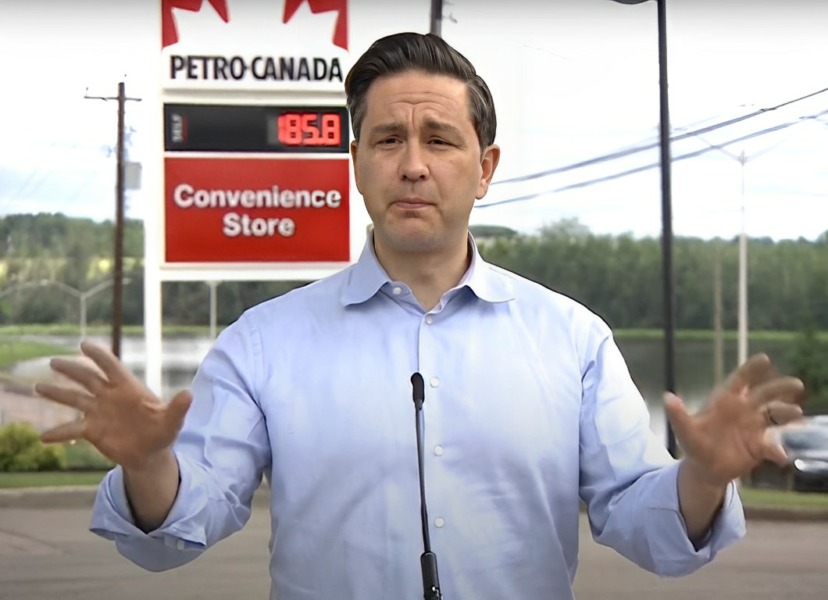Silent Signals: Poilievre Mum on Question of Courting Far-Right Vote
- TDS News
- Breaking News
- August 17, 2023

Prince Edward Island, Canada– On a seemingly ordinary day in Prince Edward Island, the Conservative Party of Canada leader, Pierre Poilievre, held a press conference on Wednesday afternoon at a Petro Canada station. What was anticipated to be a standard anti-carbon tax message aimed at resonating with the public turned into a thought-provoking exchange that shed light on the Tory leader’s political approach and messaging. The conference took an unexpected turn when a reporter asked, “Are you trying to court the far-right vote?” Poilievre’s response, or lack thereof, raised eyebrows and generated discussions about his political stance and objectives.
While he quickly dismissed the question as another instance of what he called a “CBC smear job,” his refusal to provide a straightforward answer added a layer of intrigue to the proceedings. The spotlight on this seemingly innocuous exchange prompted a deeper analysis of Poilievre’s actions and messaging, revealing a complex strategy to secure votes from the far-right while also attempting to appeal to a broader voter base.
The Conservative leader’s efforts to court the far-right have been evident in past actions leading up to the press conference. His associations with anti-vaxxers and participation in the controversial illegal truck convoy demonstrated a willingness to engage with segments of the population that hold more extreme views. Furthermore, his interactions with individuals with racialized viewpoints have sparked debates about his commitment to combating discrimination and bigotry, despite his public declarations.
The tension between Poilievre’s actions and statements underscores many politicians’ broader dilemma: the challenge of appealing to diverse voter groups while maintaining a consistent and principled stance. While Pierre has positioned himself staunchly against discrimination and bigotry, his willingness to engage with far-right elements raises questions about the sincerity of his convictions. This incongruence between rhetoric and actions can erode public trust and contribute to a perception of opportunism.
The significance of the reporter’s question lies in its potential implications for Canada’s political landscape. Poilievre’s non-committal response can be seen as a strategic move designed to avoid alienating the far-right voter base while preventing potential backlash from moderate and independent voters. In a society where political parties rely on a broad spectrum of voter support, Poilievre’s evasive response functions as a silent dog whistle. This gesture can be interpreted as a nod to the far-right without explicitly committing to their ideologies.
This calculated ambiguity exposes a broader challenge faced by the Conservative Party: the delicate balancing act between solidifying a loyal base and appealing to a broader, moderate electorate. Securing the far-right vote cannot be underestimated, representing a sizable portion of the voting population. However, the party’s ability to broaden its appeal beyond this base hinges on its willingness to address critical issues that resonate with independent and moderate voters.
The Party’s hardline stances on immigration, religion, Indigenous issues, climate change, and social matters contribute to a divisive narrative that may hinder the Conservative Party’s efforts to capture a more diverse and moderate electorate. As the political landscape changes, the party’s ability to adapt its messaging and policy positions will be pivotal in determining its success at the polls. As Canada’s political landscape continues to evolve, the Conservative Party’s ability to navigate these challenges will shape its prospects for success in future elections.








